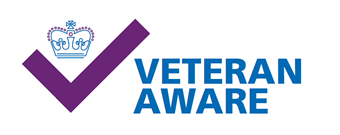Nosebleeds
Coping with nosebleeds
This information is designed to help you cope with any nasal bleeding you may suffer and to suggest ways that may help prevent further episodes.
Why have I had a nosebleed?
Often the cause is unknown. However, some causes can include:
- High blood pressure.
- Picking your nose.
- Recent colds resulting in strong nose blowing.
- Recent sinus or nasal surgery.
- Anti-coagulation therapy.
Where does the bleeding come from?
The nose has a rich blood supply. Blood capillaries all converge in the nasal septum (the thin piece of cartilage separating the nostrils).
The area of the septum which contains all these blood vessels is known as the Little’s area. Most nosebleeds arise from this point and can be stopped by applying pressure.
Occasionally they can arise from further back in the nose - which makes them more difficult to stop by simply pinching the nose.
What are the first aid procedures to stop the bleeding?
- Remain calm. Most nosebleeds stop with simple first aid measures.
- If you are alone, summon help if possible.
- Sit upright with your head slightly forward. Breathe through your mouth.
- Apply firm pressure with the thumb and forefinger at the level of the nostrils. You will need to do this for approximately 10-15 minutes. Do not feel tempted to let go sooner, as all the good work done by the compression may be undone by 10 seconds curiosity to see if the bleeding has stopped.
- Ice packs can be applied to the forehead or bridge of the nose (a packet of frozen peas or similar makes a good ice pack). Sucking a small piece of ice can also assist in stopping the bleeding.
- Try to spit out any blood going down your throat.
It may be helpful to measure the amount of blood loss. We realise that this is difficult, but try to catch any blood in a bowl.
What at happens if I cannot stop the bleeding myself?
If after 10-15 minutes the bleeding continues attend the nearest accident and emergency department or call an ambulance.
Sometimes very severe nosebleeds may make you feel faint or dizzy, so make sure you are sitting down. (Standing up may lower and already low blood pressure).
What to do after a recent nosebleed?
- Do not drink very hot fluids for or have hot showers for 24 hours. This can cause the blood vessels to dilate, which can lead to rebleeding.
- Avoid blowing your nose for a couple days to allow the healing area inside the nose to settle down.
- If you feel as if you are going to sneeze, cover your mouth and sneeze through your mouth. Do not try to hold back a sneeze, as this may cause a build up of pressure in your nose which can cause bleeding in the healing area.
- Avoid constipation and straining when going to the toilet, as again this increases the pressure inside your nose. Lots of fibre in your diet may help.
- Do not pick your nose or try to clean it with buds. Doing so will dislodge any healing crusts. It is normal to have bloodstained mucus discharge from your nose for approximately a week.
- Stay away from very smoky places for a week.
- Your nose may feel blocked for up to 10 days following a nosebleed. It will gradually clear.
- Mouth washes may help if your mouth feels dry due to constant breathing through the mouth.
- Drink plenty of cool fluids.
- If your nose is very sore the doctor may prescribe Naseptin cream which will help soothe the nasal mucosa and prevents crusting.
- If you smoke, try to give up or at least cut down. Smoking can irritate the sensitive nasal mucosa, leading to bleeding.
What to do after a severe nosebleed?
Severe nosebleeds can arise higher and further back in the nose. These nosebleeds sometimes do not respond to pressure alone and may require insertion of nasal packing to stop the bleeding. The packs place pressure on the bleeding vessels and so stop the bleeding.
Occasionally the doctor may cauterise the bleeding vessels, which means silver nitrate sticks are inserted into the nostril for a few seconds to seal the bleeding vessel.
What happens if I am admitted to hospital?
If you have had a nasal pack inserted you will need to stay in hospital. This is usually for 24-48 hours to ensure the bleeding will not recur (packs usually remain for up to 24 hours).
In Bristol the ENT department is based at the Bristol Royal Infirmary - and you will be transferred here if you need to stay in.
What to do about anti-coagulant medication?
If you are on anticoagulant or aspirin the doctor should have advised you what to do regarding taking this medication after your nosebleed. If you have not been told what to do with your anticoagulation medication please do ask the emergency department team or your GP.
© North Bristol NHS Trust. This edition published April 2024. Review due April 2027. NBT002300.

